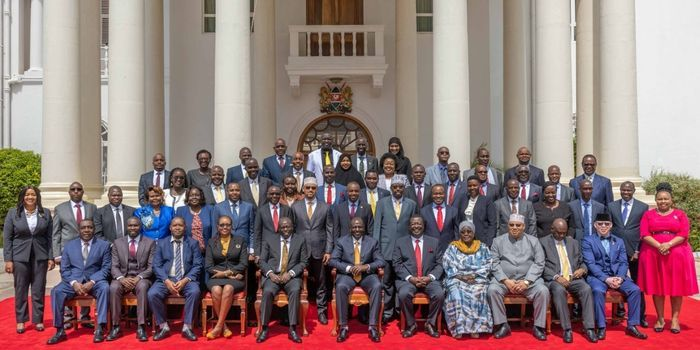The Parliamentary Committee on Justice and Legal Affairs (JLAC) chair, George Muragara, made significant clarifications on Tuesday, March 19, regarding the roles and limitations of Chief Administrative Secretaries (CASs) within the Kenyan government. Muragara emphasized that CASs would not have the authority to report directly to parliament, shedding light on the hierarchical structure within ministries and the legal boundaries defining their positions.
Fresh responsibilities for CASs
One of the crucial points Muragara highlighted was that CASs, unlike Cabinet Secretaries (CSs), are not considered state officers under the Constitution. He pointed out that their office was established by parliament, not the Public Service Commission, making their status distinct from that of CSs.
“It is essential to understand that they are not state officers since creating a state office would require amending the constitution,” explained Muragara during the parliamentary session.
In terms of accountability and reporting mechanisms, Muragara stressed that only CSs would have the mandate to report to parliament in response to any summons. This responsibility cannot be delegated to CASs, as outlined in the constitutional framework.
Moreover, Muragara provided insights into the organizational hierarchy within ministries, clarifying that CASs would hold the third-highest position, with Principal Secretaries ranking second, and CSs occupying the topmost position.
Elaborating on the roles of CASs, Muragara stated that they would primarily serve as support to CSs, carrying out delegated duties and responsibilities as assigned by their superiors.
The creation of CAS positions became a topic of legal contention, with the court initially blocking President Ruto’s appointments, citing constitutional concerns. However, parliament subsequently approved the appointment of CASs without imposing a numerical limit, which was previously set at 22 to align with the number of ministries in Kenya.
Member of Parliament Beatrice Elachi added her perspective to the discourse, cautioning against an excessive number of CASs, which could lead to role ambiguity and overlapping responsibilities. Drawing from her experience as a former CAS, Elachi noted the efficacy of having a streamlined structure where each CAS worked closely with one CS.
Despite parliamentary approval, President Ruto has not yet appointed individuals to fill the CAS positions, leaving the roles and responsibilities of these officials in a state of anticipation within the government’s administrative framework.














